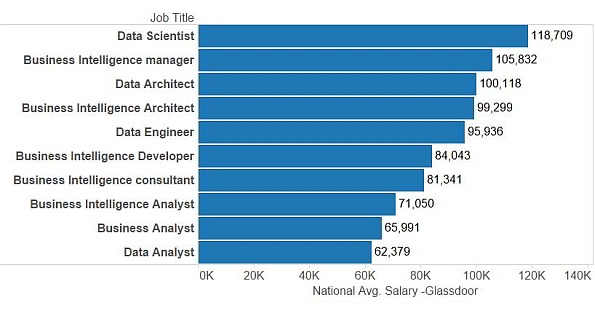Business Intelligence (BI) has become a crucial aspect of modern businesses, enabling organizations to make data-driven decisions and stay ahead of the competition. As a result, the demand for BI professionals has surged, and so have their salaries. In this article, we will delve into the world of BI salaries, exploring how different skill sets can impact your earning potential.

Introduction to Business Intelligence
Business Intelligence refers to the process of collecting, analyzing, and interpreting data to gain insights that inform business decisions. BI professionals use various tools and technologies to analyze data, identify trends, and create reports that help organizations optimize their operations, improve performance, and increase revenue.
Key Skill Sets in Business Intelligence
To succeed in the field of Business Intelligence, you need to possess a combination of technical, business, and soft skills. Here are some of the key skill sets that can impact your salary:
- Data Analysis and Modeling: Proficiency in data analysis and modeling tools such as Excel, SQL, and data visualization tools like Tableau, Power BI, or QlikView.
- Data Science and Machine Learning: Knowledge of programming languages like Python, R, or Julia, and experience with machine learning algorithms and statistical modeling.
- Data Warehousing and ETL: Understanding of data warehousing concepts, ETL (Extract, Transform, Load) tools like Informatica, Talend, or Microsoft SSIS.
- Reporting and Visualization: Skill in creating interactive and dynamic reports using tools like Crystal Reports, SSRS, or Power BI.
- Business Acumen: Understanding of business operations, market trends, and industry dynamics.
- Communication and Collaboration: Ability to communicate complex technical concepts to non-technical stakeholders and collaborate with cross-functional teams.
Salary Ranges by Skill Set
The salary range for BI professionals varies widely depending on the skill set, location, and industry. Here are some approximate salary ranges for different skill sets:
- Data Analysis and Modeling:
- Junior: $60,000 – $80,000 per year
- Senior: $100,000 – $140,000 per year
- Data Science and Machine Learning:
- Junior: $80,000 – $110,000 per year
- Senior: $140,000 – $180,000 per year
- Data Warehousing and ETL:
- Junior: $70,000 – $100,000 per year
- Senior: $120,000 – $160,000 per year
- Reporting and Visualization:
- Junior: $50,000 – $80,000 per year
- Senior: $90,000 – $130,000 per year
- Business Intelligence Manager:
- Average salary: $150,000 – $200,000 per year
- Data Architect:
- Average salary: $180,000 – $250,000 per year
Industry-Based Salary Variations
Salaries for BI professionals can vary significantly across industries. Here are some approximate salary ranges for different industries:
- Finance and Banking: 10% – 20% higher than average salaries
- Healthcare: 5% – 15% lower than average salaries
- Technology: 10% – 25% higher than average salaries
- Retail: 5% – 15% lower than average salaries
Geographic Location and Salary
Location can also impact salaries for BI professionals. Here are some approximate salary ranges for different cities:
- New York City: 10% – 20% higher than average salaries
- San Francisco: 15% – 30% higher than average salaries
- Chicago: 5% – 15% lower than average salaries
- London: 10% – 20% higher than average salaries
FAQs
- What is the average salary range for a Business Intelligence professional?
The average salary range for a BI professional is between $80,000 and $150,000 per year, depending on the skill set and location. - How do I become a Business Intelligence professional?
To become a BI professional, you need to possess a combination of technical, business, and soft skills. You can acquire these skills through formal education, online courses, or professional certifications. - What are the most in-demand skill sets in Business Intelligence?
The most in-demand skill sets in BI include data analysis and modeling, data science and machine learning, data warehousing and ETL, and reporting and visualization. - How does location impact Business Intelligence salaries?
Location can significantly impact BI salaries, with cities like New York and San Francisco offering higher salaries than others. - What is the future outlook for Business Intelligence professionals?
The demand for BI professionals is expected to grow significantly in the coming years, driven by the increasing need for data-driven decision-making in businesses.
Conclusion
In conclusion, the salary for Business Intelligence professionals varies widely depending on the skill set, location, and industry. To succeed in this field, you need to possess a combination of technical, business, and soft skills. By understanding the different skill sets and their corresponding salary ranges, you can make informed decisions about your career path and negotiate a salary that reflects your value to the organization. As the demand for BI professionals continues to grow, it’s an exciting time to be in this field, and with the right skills and knowledge, you can unlock a rewarding and lucrative career.
Closure
Thus, we hope this article has provided valuable insights into Business Intelligence Salary by Skill Set: A Comprehensive Guide. We appreciate your attention to our article. See you in our next article!


